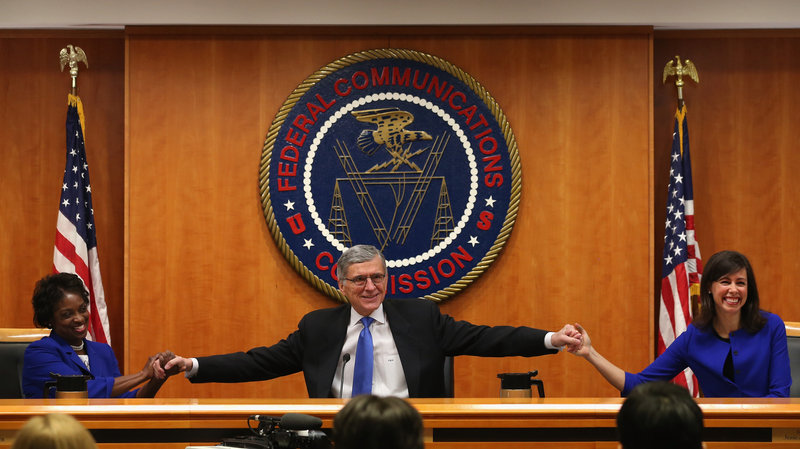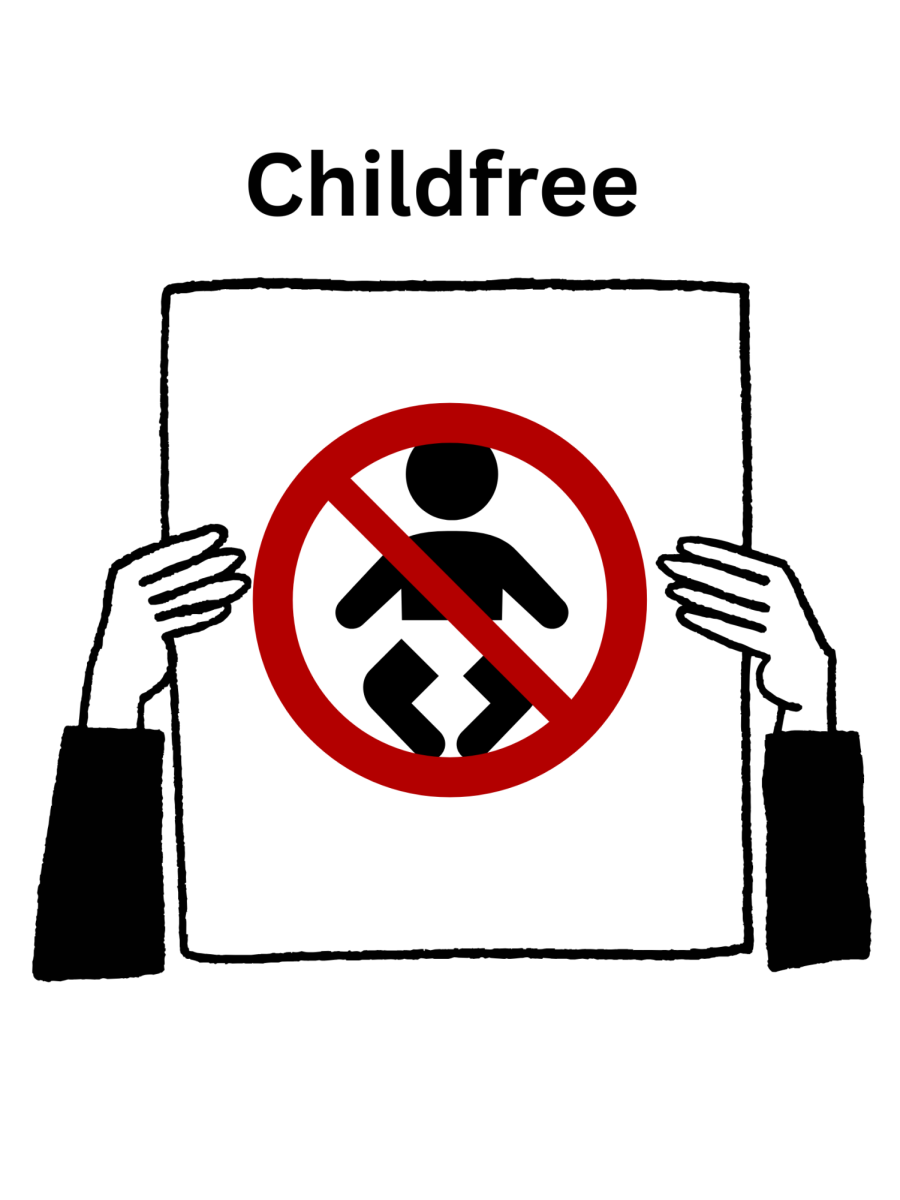Managing Editor
On Thursday, Feb. 26, the FCC voted 3-2 in favor of Net Neutrality. This means that the internet will remain open for all users and that speeds will not be throttled by internet service providers, which is very good for all of us. For those who are confused by the term Net Neutrality, let me explain.
As explained by John Oliver on the June 1, 2014 episode of Last Week Tonight, Net Neutrality means that “all data has to be treated equally, no matter who created it. It’s why the internet is a weirdly level playing field.” Back in 2014, the FCC was working to create paid “fast lanes” on the internet, meaning that the ISPs would charge companies depending on how fast they would allow users to reach their information on the internet. If the company paid, the user would quickly reach their data. If the company did not pay, then the speed to reach their data would be drastically slowed down.
This would have affected such sites as Netflix and YouTube, who would have to pay out a lot of money to all these ISPs to be able to stream videos reliably. While they have the money to do this, start-up competitors trying to provide a similar service would be ousted before they even had a chance because of these fees.
Large companies would be able to buy their way into these “fast lanes”, meaning that smaller, or unwilling companies, would be forced into the slow lanes, and at an immediate disadvantage to the larger conglomerates. It would have also meant rising and wavering prices for us the consumers for internet speeds as well.
The United States already pays an extreme amount for internet, yet it is ranked 27th in speed (33.26 mbps download) according to Ookla Speedtest in Feb. 2015. The US ranks behind such powerhouse countries as Luxembourg, Andorra, Estonia, Moldova, Macau, and the Aland Islands.
This has been widely opposed by activists and companies alike, such as Google, Facebook, Netflix, and Amazon.
This seems like it’s nothing but talk and idle threats, but Comcast has been caught multiple times doing this. First, in fall 2007, Comcast interfered with and blocked bittorrent traffic on their networks. They denied this, of course, but after being issued an order to investigate in November of 2007, the FCC determined that Comcast was blocking the traffic and in August of 2008 filed an order to Comcast to stop discriminating the traffic. Comcast appealed and won in April 2010 only because the D.C. Circuit Court questioned the FCC’s ability to enforce net neutrality rules. This was counteracted by the FCC “reclassifying the transmission component of broadband service as a telecommunications service” in order to use Net Neutrality rules.
The second time Comcast was caught altering traffic began in October 2013. According to the June 1, 2014 episode of “Last Week Tonight,” and the Washington Post on April 24, 2014, Comcast was negotiating with Netflix about this and Netflix refused to give in. Due to the refusal, Comcast began plummeting Netflix’s download speed by nearly 25% by January 2014. In February, Netflix gave in to Comcast’s demands.

Comcast, along with Time Warner Cable, have the lowest customer satisfaction ratings of any company, according to a May 2014 survey by Boy Genius Report, a popular technology news website.
Comcast isn’t the only company guilty of doing this. In September 2012, AT&T blocked FaceTime on its networks unless users subscribed to their “Mobile Share” plan, meaning they would have to spend more money to use FaceTime. After pressure from some public interest groups, who were planning on filing to the FCC, AT&T lifted the block in January 2013.
The only reason why this has been an issue for so long, despite so much opposing outcry against it is because these cable companies have been lobbying money to Washington, D.C. According to the June 1 2014 episode of “.Last Week Tonight”, Comcast lobbied over $18 million, which was the second most of any company in 2013. Verizon even sued the government to force this rule change that caused Net Neutrality to become an issue.
This is a problem because all the cable companies have been working together on this, and are not competing with each other. Ever wonder why the major providers are only Bright House and AT&T in town, but a few miles south in Los Angeles has Time Warner? It’s because the companies are working together to create a series of local monopolies on cable and internet services. If this had passed, there would be no outs, no escaping, and no alternatives for anyone in the country.
The tides began to turn after the June 1 2014 episode of “Last Week Tonight,” when host John Oliver urged viewers to post their concerns and anger to the FCC website, which opened up its site for public comments. The amount of comments and traffic the FCC received crashed their website. They received over a million comments, and less than 1% of those comments opposed net neutrality. Coupled with the news about Netflix being forced to pay Comcast and Verizon fees to fix streaming errors, the FCC finally began investigating these agreements.
The public outcry of the near likelihood of the end of Net Neutrality, the public comments and all the calls and comments made on Internet Slowdown Day on Sept. 10, 2014, both of which crashed the FCC’s website with an overload of comments defending Net Neutrality, President Obama issued his support for net neutrality in November 2014, which in turn caused FCC chairman Tom Wheeler, a former lobbyist for the cable industry, to support Net Neutrality as well and lead the 3-2 vote to allow open internet rules applying to both wired and wireless internet connections, by listing internet as a utility.
After years of abuse and terror from these ISP companies, we, the users, used our voices and outcries to prove to those in charge that Net Neutrality is what we have always needed, and that there’s no reason to fix what isn’t broken. First we did it with SOPA, and now with Net Neutrality, and I’m sure another cause in the future will require us to band together once again.
It is important to be aware of what the government is doing, and who is trying to influence them for their own benefits. We nearly had restricted internet so that these ISPs, who are working together for a monopoly on the internet, can charge whatever they want for speeds we should be getting already. Their greed nearly crippled us as an interactive, technological based society.
The battle has been won, but the war still wages on. I’m sure lawsuits will follow trying to reverse this decision, but as long as our voices remain strong and loud, we can fight the greedy conglomerates trying to limit and restrict our free internet and free will.
*Information for this article was found on http://whatisnetneutrality.org/timeline*









